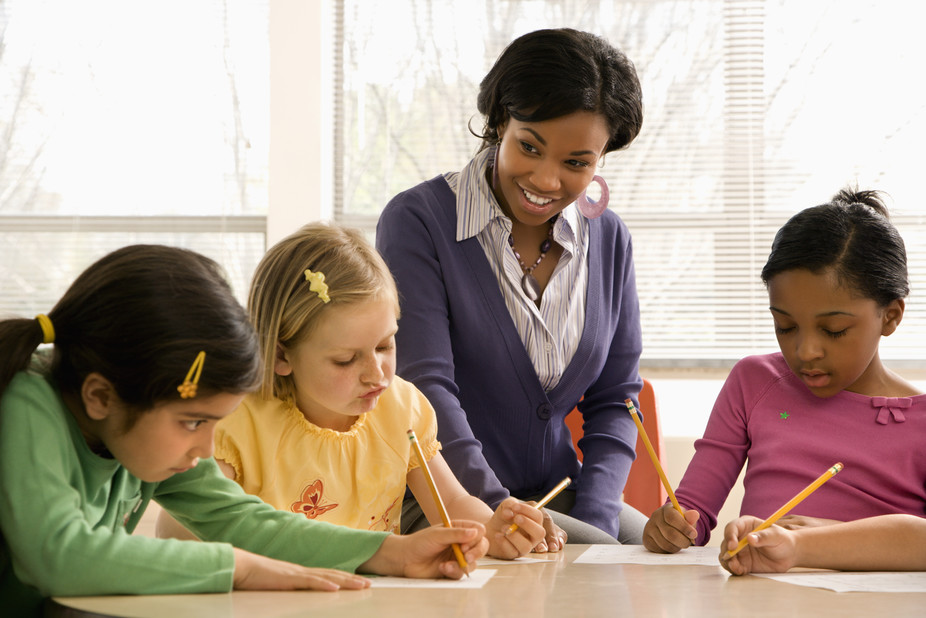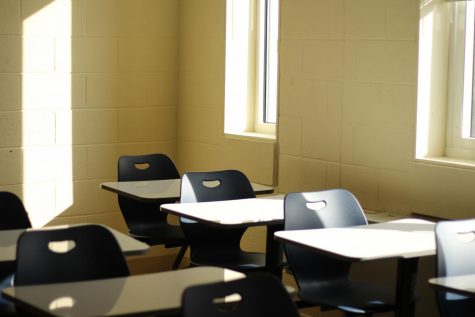Rapports for Success
When a kid goes through the early stages of childhood, they leave their complacent life of having the main caretaker that is the parent, and become newly accustomed to a new guardian in their life that is the school teacher. A teacher is important in a student’s life as they grow up because the period through the young adult phase is filled with exploration and new beginnings. With the teacher, the new beginnings lead to an introduction to the world of education and the teacher must be present to lead the students in the right direction. A student, that walks into a class with a new teacher, will want to feel welcome as it builds work ethic for the student to succumb to the teacher’s shown respect. Cumulatively, a healthy relationship between the student and his or her teacher will only establish improvements in a student’s journey to being successful academically and psychologically.
Relationships between teachers and their students through history range to the very beginning origins of education. One of the greatest phenomenons in the history of teaching goes back to 1887, with the relationship between Anne Sullivan and Helen Keller. According to Jon Miltimore, Senior Editor of Intellectual Takeout, Sullivan made learning approachable to Keller and what Keller would explain later would describe Sullivan’s teaching as engaging and fun, rather than laboring. Helen Keller would later become the first deaf-blind individual to graduate from college. The nature of Sullivan’s approach to Keller is a demonstration of how teacher’s methods of approach ability have positively affected students throughout history. Additionally, teacher and student relationships have emerged through history ranging back to 1968, specifically on the day of April 5th, a day after Dr. Martin Luther King Jr. was assassinated. Teacher Jane Elliot, then 3rd grade teacher in Riceville, Iowa, held an anti-racism experiment with her students that used racism between divided students to show how the social epidemic was horrible and mistreated others. The students under Elliot, subsequently were compelled in thinking together that racism was awful as they had all had been through it in a similar fashion with the experiment. Nearly 16 years after, the students returned in a reunion visiting Elliot at the same school and watched back the film of the experiment and reacted to how they’ve changed over the course of their lives. Jane Elliot as a teacher not only demonstrated the positive academic effect of her relations with her students, but undoubtedly showed how the relationship between a teacher and his or her students could positively affect a pupil’s psychological development as well. Without Elliot’s intervention into the dismissal of racism amongst students, many of her students might still be the same way they were 20 years later. Teacher and student relationships have played a key role through history and many of these relationships have shaped how education is performed today.
In the system of education there are conflicting viewpoints as to how teachers are to be associated with their students, as some believe that these relations could be clearly beneficial to one’s mindset, but detrimental to performance in the classroom. There are clear differences between teachers and students characteristically, which to some, proves these relations are inadequate, as the groundworks for friendships typically incorporate equality (Amy Shuffelton). Essentially the teacher can grow close to his or her students, whilst keeping the notice of true authority in their workplace, that is school. “We can grow closer to students when we share a common interest or work on long-term projects, but in every interaction, we remain teacher/student, mentor, not true friend, and this is wise” (Wormeli). Indeed there are repercussions that are possible with relations between the two, but the overriding benefits of a productive relationship make the acquaintance a necessity for a student’s success.
One of the difficulties that comes with education is for the ability to invite students to appreciate learning. The importance of a teacher demonstrating care in his or her students is vital because it diminishes the method of punishment or discipline, which students perceive as discouraging. These signs of affection for the students foster better performance, and most likely make coming to school an experience that is enjoyable, rather than one that is constantly stressful. When teachers develop empathy with their students, the students’ feel a sense of being accepted and valued. Some many argue that this method may lead to the perception in the classroom of favorites, but if the teacher reaches out to each individual equally, they will feel respected and will create strong connections from the teacher to every student. This in turn builds mutual respect and will advance the student’s emotional state in the class (Mark and Christine Boynton).
The role a teacher plays in a student’s life can be described through the term caregiver, which is justifiable because as part of a national survey of adolescents, it was shown that the most correlated factor for positive youth outcomes was the presence of an affectionate adult. Additionally, the teacher was connected to being the most frequent source of adult support to these children (Resnick et al.). At no matter what age, whether caregiver, or guide, the teacher facilitates the student’s course to success while the student gains the drive to perform form how engaged they are into the topic at hand. As the student begins to become more engaged to the material or the curriculum, the more likely a student will show a determined work ethic will drive to succeed because of the respect that is given to the teacher (Kaufman, Sandilos). Furthermore, a student will only become engaged into a curriculum until the teacher gives the appropriate passion that the student deserves. Once they show a certain amount of passion and care towards the student’s potential success, finally the student will replicate the level of care and put it into work.
In conclusion, the bond between students and teachers, is too beneficial to be non negligible in the system of education. Mutual respect between the two subjects commences a work ethic from the student, that is driven from the student’s appreciation for the passion the teacher exhibited initially. The student feels obligated to do better academically because they do not want to dissatisfy the teacher. As well as the improvements in the student’s academic abilities, they also evolve socially as they gain another adult to consult for needs. The overall necessity of the relationship between students and teachers is defined by the given fact that the bond only brings prosperity to a student’s life. Whether it be in the classroom or for approaching the real world, the student will always benefit from the relationship they attained with their teacher.

My name is Arthur Kennington, I am a Junior at Oakton High School and have been on the Oakton Outlook Staff for 3 years. This is my first year being a...










